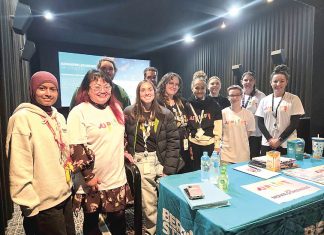A RURAL medical student association fears Gippsland’s lack of medical placement opportunities is driving junior doctors away from the region.
Australian Medical Students’ Association Rural Health Committee represents 17,000 medical students from across the country.
Committee member Brad Wittmer, who is also a Gippsland medical student, said many of Gippsland’s young doctors were “shunted” to cities because that was where training was available.
He said this “significant rural-urban migration” was due to the structure of the medical training system, rather than the intent and interest of junior doctors.
“While there are opportunities to undertake specialty training in general practice, it is effectively impossible to undertake a significant portion of training for any other specialty in a rural or remote area,” Mr Wittmer said.
“The main concern is that people who are genuinely passionate about rural health will move to cities during their training years.
“Often these people will find themselves a partner and buy a house, tying them to the city and making them less likely to move back to a rural area to practice.”
Mr Wittmer himself faces the reality of relocating for specialist training once he has graduated and completed an intern year.
It’s not something he wants to do, but he feels he has “no choice” if he wishes to work in a field other than general practice.
“As a person, who was raised in Gippsland, is passionate about rural health and wants to practice in Gippsland, moving to Melbourne for at least five years is less than appealing,” Mr Wittmer said.
Monash University School of Rural Health head of school Robyn Langham said she was a picture perfect example of someone moving away for a registrar year and settling down.
“There are registrar training positions available right around Gippsland but the vast majority are aimed at general practice specialities,” Professor Langham said.
“The difficulty is when you are in an accredited (specialist) training program most of them are run out of metropolitan areas.”
She said in a bid to combat this, Monash and Deakin universities were working together to establish a network of regional medical ‘hubs’.
The hubs will provide postgraduate programs in general practice and other key medical specialties such as obstetrics, psychiatry and paediatrics to encourage doctors and general practitioners to work regionally.
Professor Langham said the hubs would be Federal Government-funded, and an application had been made to place one in Gippsland.
Mr Wittmer said government investment was key in ensuring rural vocational training positions for doctors.
He also called for further development of the government’s Specialist Training Programme to include more rural and remote training positions.
The program aims to “enhance workforce distribution by providing specialist registrars with training opportunities in rural areas and areas of workforce shortage”.
It also seeks to “increase specialist training capacity and quality by providing educational opportunities in settings where registrars will work once they obtain Fellowship”.
About 900 specialist training places across the country are currently funded by the STP, but Mr Wittmer said the program could be “easily expanded” to cater for more regional positions.
The Federal Government had not responded to questions from The Express at the time of publication.










